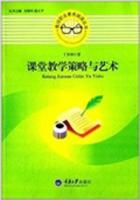D. have the chance to improve your English quickly
5. This passage may be .
A. an advertisement
B. a speech
C. a story
D. an introduction
The English language is changing, and fast, thanks to the rapid progress of technology. We all have a choice: We can either bury our heads in the sand and spend the rest of our lives wishing Shakespeare were alive and well. Or we can embrace1 the new English, enter into the spirit of the Internet age and call it Weblish.
“You cant avoid it, for the simple reason that whenever a new variety of words comes along, it inevitably2 impacts on the language as a whole,” says Dr. David Crystal, honorary professor in linguistics at the University of Wales in Bangor, whose book Language and the Internet has just been published.
The trouble with keeping up with the new English is not so much that there are so many new words but that the old words no longer mean what we thought they did. In the past, if someone said they did not have Windows, you would have to assume they lived in a cave. These days, it is probably because they use a Mac (which is a computer, not a raincoat). Spam is as disliked as it ever was, but whereas3 it once meant an unappetizing canned meat, it now stand for unwanted “junk” email. Spellings are changing, too. Not only is textmessaging play “hvc wth vrbs” (havoc with verbs), but the conventions4 of email communication place little emphasis on “perfick speling” (prefect spelling).
Weblish loves to see nouns happily become verbs (“Please bookmark this site”), and verbs become nouns (“Send me the download”). Verbs and prepositions are regularly thrown together to become new nouns or adjectives (dialup, logon, print out, pulldown, upload), while others are created from simply pairing nouns: cyberspace, Ethernet, Internet, hyperlink, metatag, netspeak.
TitleKeep up with the Latest 1
Information about Dr. David Crystal.He is a professor in 2 at the University of Wales.
His idea: a new variety of words has great effect on the 3.
His 4 book Language and the Internet has just been published.
Old words no longer 5 what we thought they did.“Windows” is probably used as a 6.
“Spam” stands for unwanted “junk” 7 now.
8 is also changing.havoc with verbs→hvc wth vrbs
prefect spelling→perfick speling
Nouns become 9, and verbs become nouns.
Verbs and prepositions are regularly thrown together to become new nouns or adjectives.Please bookmark this site(noun→verb)
Send me the10(verb→noun)
dialup, logon, print out, pulldown, upload
【生词注释】
1. embracevt.& vi. 拥抱2. inevitablyadv. 不可避免地
3. whereasconj. 但是;而4. conventionn. 习俗;惯例
根据短文内容,在表格中的空白处填入恰当的单词。注意:每个空格只填一个单词
For students in Singapore, movies are not just something for fun. They also help them speak and write better in English, according to a recent report in the Strait Times.
Since March, Blangah Rise Primary in Singapore has tried to make language teaching fun by using movies. As part of their English language lessons, pupils watch shorten film. Teachers use the subtitles1 function on the DVD players to turn the text on and off to help them practise catching better, listening and improving their writing skills.
The school has found that children are more eager to learn and better able to answer questions on what they have seen and heard because they pay greater attention to the movie than the usual paperbased comprehension sheets. Teachers said they have seen vast progress in participation2 and understanding in classes. Before the DVD programme was introduced, almost every child would leave one to two questions in their comprehension exercises blank. Now, they not only attempt all questions but provide lengthy answers too.
In contrast3, “Indians are yet to realise the need to make English teaching fun,” says Professor David Crystal recently. He is one of Britains and worlds foremost experts on language, and currently4 working in India. “The structured ways of teaching have ensured that English learning has remained at best an unexciting experience for most Indians,” he says. Crystal also suggests language play is another way in which English teaching and learning can be made an enjoyable as well as a rewarding experience. “Everyone plays with the language. I dont know of a single person who does not,” says Crystal. “To have fun from language has always been a part of everyday conversation and should naturally be a part of language learning and teaching”, according to him.
【生词注释】
1. subtitlen. 对白;字幕2. participationn. 分享;参与
3. contrastn. 对比;对照4. currentlyadv. 当前;目前
根据短文内容,按照题目要求回答问题
1. What does the underlined word “They” refer to?(No more than 3 words)
2. Why are the children more eager to learn and better able to answer questions on what they have seen and heard?(No more than 10 words)
3. Where is Professor David Crystal still engaged in his recent study? (No more than 10 words)
4. What has always been a part of studying language? (No more than 10 words)
5. What do you think of language play? Please give your reasons. (No more than 20 words)















